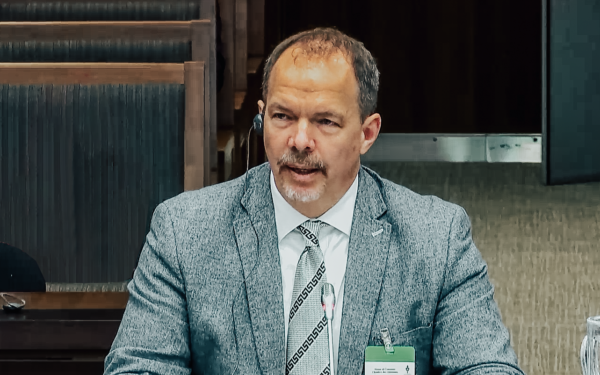The .XXX top-level domain (TLD) was approved, and there was plenty of drama surronding the renewal of the IANA contract with the U.S. Department of Commerce.
As I stated in my last blog post, the latest ICANN meeting had plenty of action.
The .XXX top-level domain (TLD) was approved, and there was plenty of drama surrounding the renewal of the IANA contract with the U.S. Department of Commerce. Effectively, .XXX and gTLDs have driven this last round of actions and the responses by all of the key actors in the governance world. At the meeting, the ICANN board voted to enter into an agreement with the ICM Registry for the .XXX TLD.
The .XXX decision was unique not just because it adds a new “adult content” top-level domain to the Internet – it also tidily summarizes all of the governance conflicts plaguing ICANN for the past several years. Not only did the board provide a 20-page rationale outlining the reasons for its approval of the ICM Registry application for the .XXX domain, many board members also explained their vote, whether in favour or against. Concerns about how to handle GAC advice, about the technical concerns of the anticipated DNS blocking, about alienating international governments, about influencing Web content, about lack of process and predictability, about respect for diversity and cultural sensitivities, and freedom of expression, were all on the table as the board hashed out, at times painfully, the .XXX decision. And while surely every aspect of the ICANN governance debate was raised during that decision, I think it is significant for two other reasons.
First of all, ICANN definitely did not follow GAC advice in approving the new TLD. This may very well trigger a shift in global Internet governance, whether by some other international body attempting to take control of certain ICANN functions, or by the GAC becoming more focussed, better organised, and asserting itself more powerfully and earlier on in the policy development process in order to ensure this type of decision, surely a disaster in many countries’ minds, never occurs again. Secondly, I have never seen such a well thought out, articulate and clear ICANN board decision than the .XXX decision. Those of us in the community who have pushed for greater accountability and transparency are hoping this is a harbinger of what we can expect from ICANN in the future. If that’s the case, the Internet governance landscape is changing, for the better.
Byron Holland (MBA, ICD.D) is the president and CEO of the Canadian Internet Registration Authority (CIRA), the national not-for-profit best known for managing the .CA domain and developing new cybersecurity, DNS, and registry services.
Byron is an expert in internet governance and a seasoned entrepreneur. Under Byron’s leadership, CIRA has become one of the leading ccTLDs in the world, with over 3 million domains under management. Over the past decade, he has represented CIRA internationally and held numerous leadership positions within ICANN. He currently sits on the Board of Directors for TORIX, and is a member of the nominations committee for ARIN. He lives in Ottawa with his wife, two sons, and their Australian shepherd, Marley.
The views expressed in this blog are Byron’s opinions on internet-related issues, and are not necessarily those of the organization.




